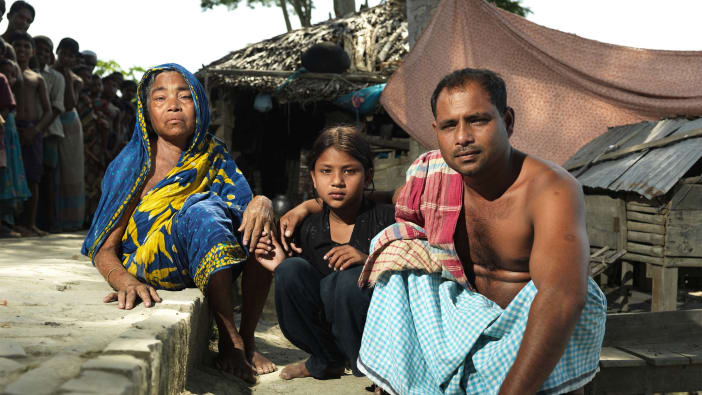Tell us about the Eco-bishops initiative and how it all started.
The Eco-bishops are a group of Anglican bishops from around the world, speaking out together about climate change. Archbishop Thabo Makgoba (who is Archbishop of South Africa) invited a group of bishops to meet near Cape Town in February 2015. We discussed the responses Anglicans have already made to climate change, and the responses we hope to make in the future.
The bishops were from different areas of the Anglican Communion already affected by various impacts of climate change, such as Fiji, Argentina, New York and Namibia.
Following the conference, we published a statement called The world is our host: a call to urgent action for climate justice. It was issued shortly before Good Friday 2015.
How have people around the world responded to this report?
The statement has been broadcast through approximately 100 media outlets around the world. It has been used in many local churches, dioceses and provinces. The response has been extremely positive.
Anglican leaders are using the statement to call for a stronger, more united response to the climate change crisis. Support from Episcopal leaders (the US Anglican church) has greatly strengthened our voice.
Was people’s response to the report what you expected?
The response exceeded our expectations for two reasons. The first was the word ‘urgent’. The Anglicans we surveyed wanted us to share a clear, inspiring and urgent message about climate change.
The report raised a second big discussion point: it called for churches to stop investing in fossil fuel industries.
In the report you encourage prayer and fasting in response to climate change. How have people responded to this idea?
A number of bishops and others have committed to the spiritual practice of fasting for the climate, joining with the movements ‘Fast for the Climate’ and ‘Pray and Fast for the Climate’. Many others have joined with Orthodox and Roman Catholic Christians in a World Day of Prayer for the Care of Creation on the first day of September each year.
The report asked for more educational resources for churches on caring for creation. Could you tell our readers about some of these that they may find useful?
We are starting to collect resources on the ACEN website. Here you will find short video clips from the bishops and worship resources from around the world. For example, Green Anglicans, a group in South Africa, have developed Ryan the Rhino – a 10-week course for children in churches.
You called on political, economic, social and religious leaders to address the climate change crisis. Have they responded?
There have been discussions in Anglican communities worldwide about changing the way we invest our funds. Many have now promised to stop investing church funds in fossil fuels (including the World Council of Churches; the Anglican Dioceses of Canberra, Melbourne and Perth, Australia; and the Episcopal Diocese of Massachusetts, USA). The Anglican Church of Southern Africa is discussing ending its investments in fossil fuels. This is the first time the region has considered this, and it is a direct consequence of the report. Currently South Africa has the dirtiest electricity in the world, as it is often produced from lower-quality coal. The air quality in Johannesburg, South Africa, is 10 times worse than the air quality levels recommended for human health by the World Health Organization.
Archbishop Thabo, what personal message would you like to give to Footsteps readers?
As your name suggests, please walk the talk. Words, words and more words will not reverse environmental degradation or carbon emissions, but our actions together can. So act now for climate justice. Change begins with us!










